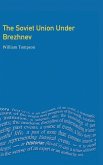The metaphor of an "archipelago" in the Solzhenitsyn's magnum opus was intended to bridge the veil of silence that surrounded the camp system, much like water surrounds enclaves of land. Since then, this deeply influential metaphor has prompted historians and readers alike to think about the GULAG as network of island-camps separated from the rest of the Soviet Union. This book brings together leading international researchers on the history of the GULAG from Russia, Europe, and North America who are advancing both new archival and conceptual findings. Perhaps the book's most unique and suggestive contribution is to consider the GULAG in the context of other camps and systems of internment. Chapters are devoted to the British concentration camps in Africa and India, the tsarist-era exile system in Siberia, Chinese and North Korean reeducation camps, the post-Soviet penal system in the Russian Federation, and the infamous camp system of Nazi Germany. This not only reveals close relatives, antecedents, and descendants of the Soviet GULAG-it sheds light on a frighteningly widespread feature of modernost'.








